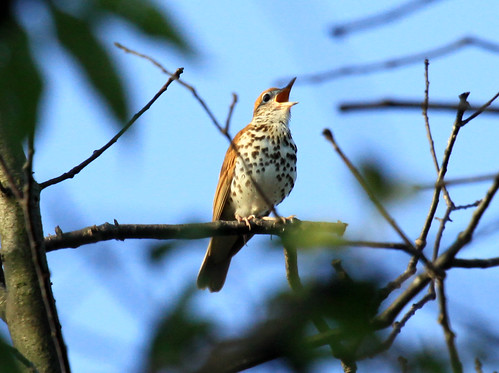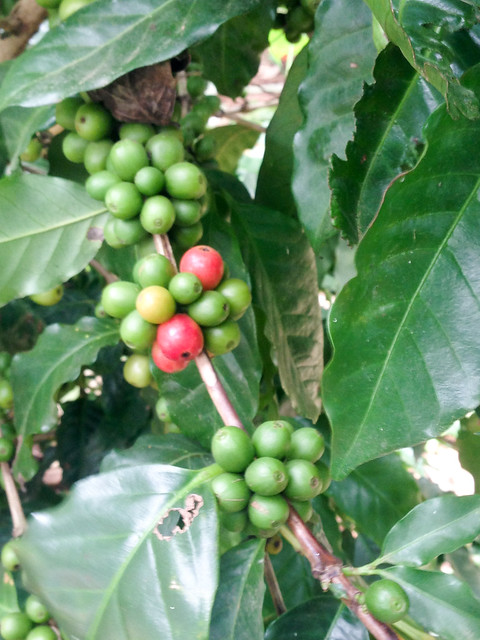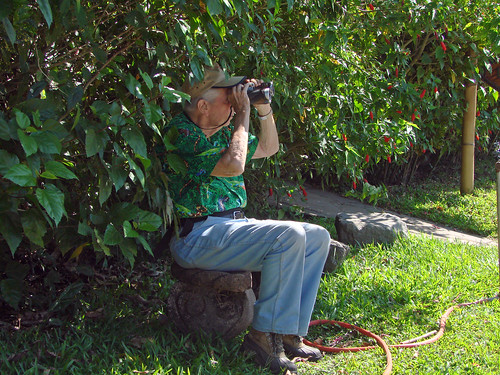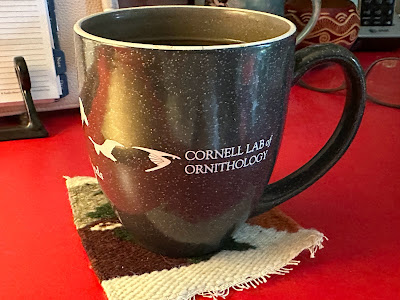My morning coffee routine wouldn’t feel satisfying if I wasn’t certain that my coffee had been grown in a sustainable way that was healthy for birds, for the people growing and harvesting it, and for me drinking it. Coffee is grown in the tropics, mostly as row crops where rain forest once stood. How could I savor my morning cup knowing that warblers, orioles, and tanagers had lost critical winter habitat to a coffee plantation, or that the human beings who had picked each bean were not getting a living wage for their work?
That’s what coffee certification is all about. It’s not too hard to find coffee that’s been certified fair trade, addressing some of my concerns, but I need more. When coffee is also certified as shade-grown, it was usually grown under an overstory of natural tropical trees, fostering at least some natural habitat for tropical birds and neotropical migrants.
Unfortunately, as I once saw in Costa Rica, coffee can be called shade-grown even when it’s not grown under a natural overstory—the seemingly endless rows of coffee trees in one shade grown coffee plantation I saw were grown under plastic awnings.
Rainforest Alliance certification ensures that the coffee is both fair trade and shade grown in a sustainable way, protecting birds and humans both.
When I need gas on a road trip, I always look for a Holiday station because one of their coffee choices is always Rainforest Alliance certified. Even if I don’t need a cup right then, I like supporting Holiday’s commitment to protecting the world we all share.
Rainforest Alliance coffee is not certified organic. Many wonderful coffee growers, who deserve to be rewarded, are reclaiming land that had been deforested for agriculture or lumber, and it takes years before land previously exposed to synthetic pesticides and fertilizers can meet the requirements for organic certification.
Coffee growers who are already meeting organic standards also deserve support. That’s why for the coffee I make at home, I buy beans that were certified by the Smithsonian's National Zoo and Conservation Biology Institute as “Bird Friendly,” meeting fair trade, shade-grown, and organic standards. To clinch it, Smithsonian scientists verify that it’s grown in quality habitat with excellent bird diversity.
I keep checking food retailers and coffee shops in Duluth but so far haven’t found any local sources of Bird Friendly coffee, so I buy it online via Birds & Beans. I like medium roast, so I buy their "Wood Thrush" blend. I used to buy it by subscription, but I'm not a good judge of how much and how often to order, so now I just buy it as needed.
The American Birding Association sells what they call "Song Bird Coffee," which is also certified by the Smithsonian as Bird Friendly.
Even the best coffee and its packaging exact a toll on the earth, and the energy consumed in transporting coffee beans and roasting them, and my own grinding the beans and heating the water, all contribute to climate change. My longtime hero, the late Chandler Robbins, once told me that he can't bear to drink more than one cup a day for this very reason, inspiring me to do the same.
Bird Friendly coffee is more expensive than uncertified coffee, but how much is a clean conscience worth?







